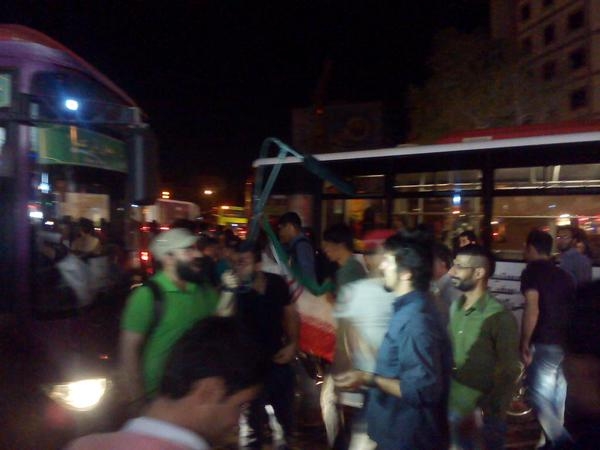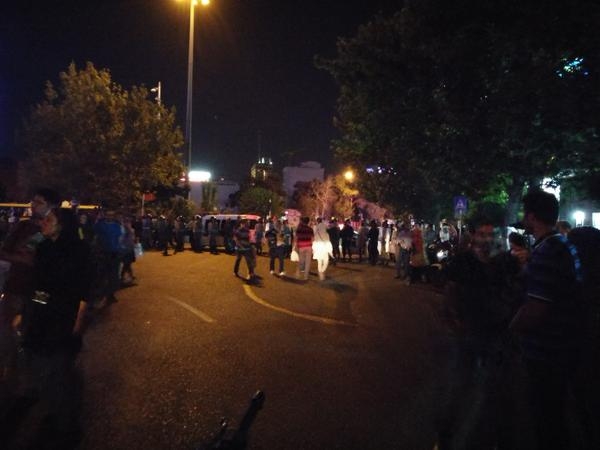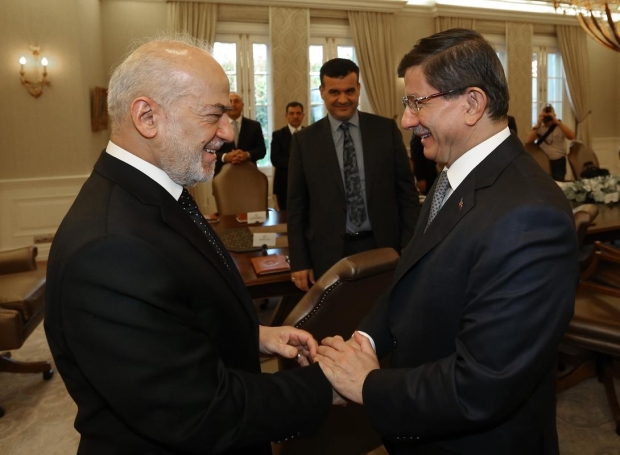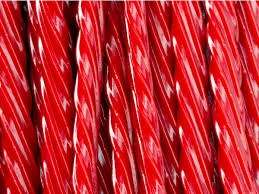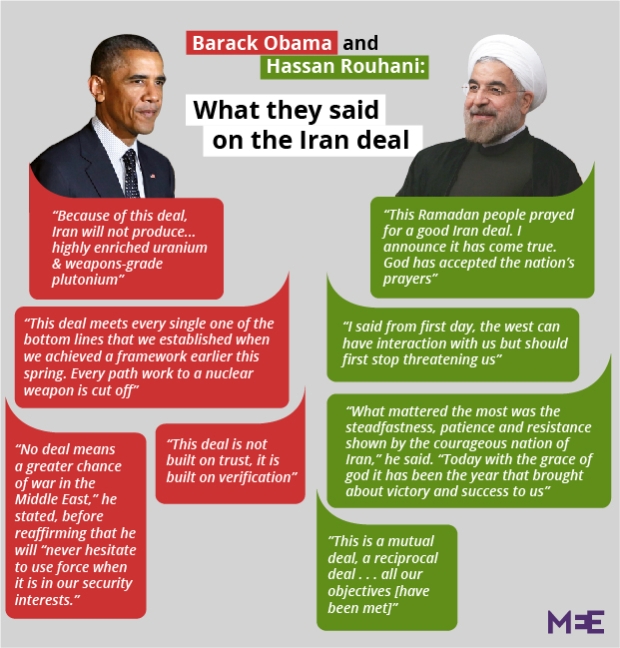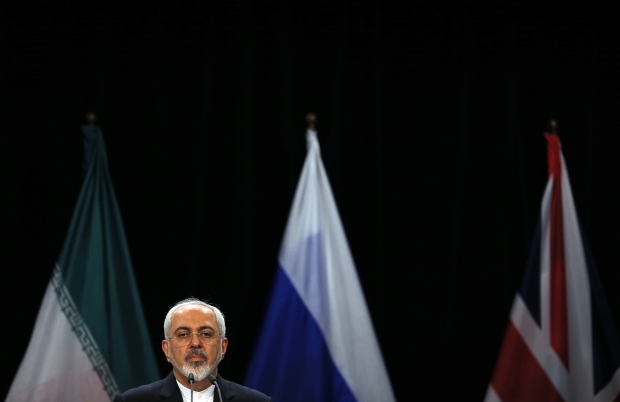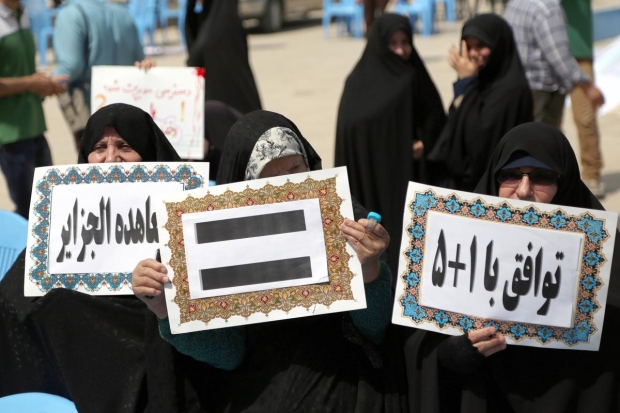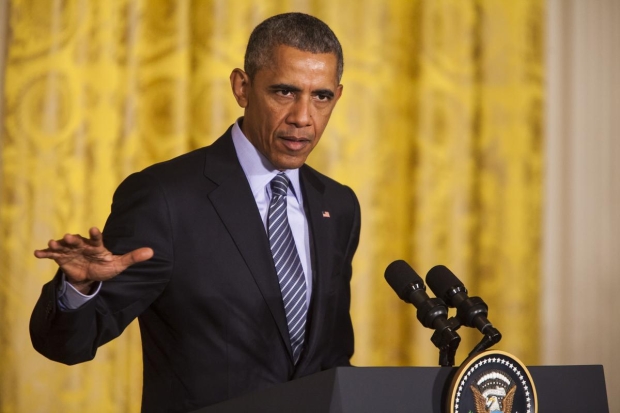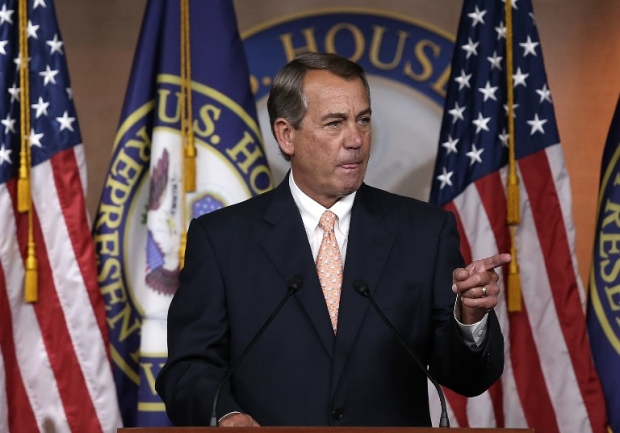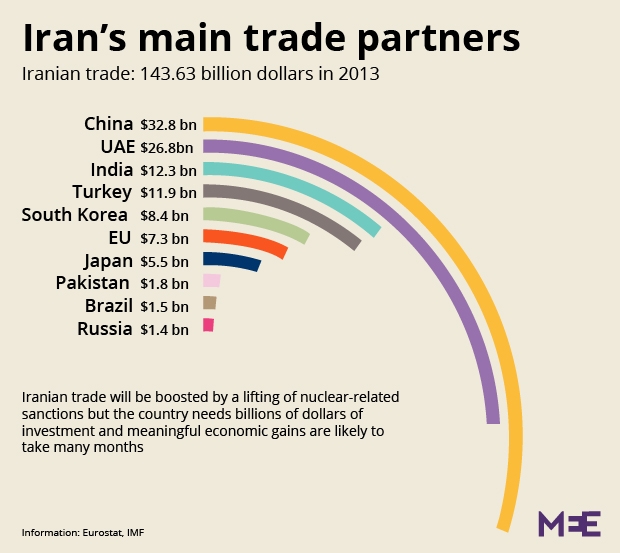LIVE BLOG: Iran nuclear deal
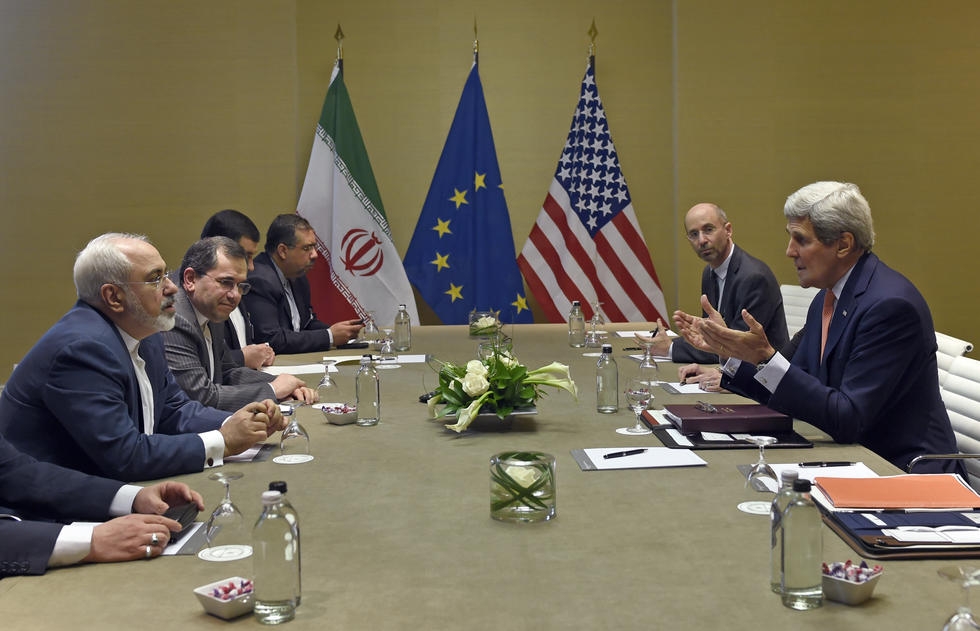
Live Updates
Translation: Dancing to the tempo in the square
After sundown on the 27th night of Ramadan, Iranians took to the streets to celebrate a deal that many hope will herald an easing of financial pressure and a new phase in the country's outlook.
Iranian journalist Aliasghar Shafieian wrote on Twitter that upwards of 600 people joined an impromptu and rapidly growing celebration in central Tehran's Valiasr Square.
Among the chants, according to Shafieian, were "Long live Rouhani," "Long live Zarif" and "Long live the reforms of Khatami," in reference to Mohammad Khatami, who served as president for eight years from 1997 and attempted to implement an ambitious raft of reforms including extending freedom of the press and reopening the embassies of all European countries.
A civil engineer in Iran, attending another nuclear deal celebration in Tehran's Vanak Square, said on Twitter that police had moved in when people began chanting "Political prisoners must be freed".
- In the next few days, the deal will pass to the UN Security Council so that it can be officially ratified and passed.
In America, Congress has 60 days to review the agreement, and there are fears that it will try to reject the deal and keep Iranian sanctions in place. Obama has already said he will veto any attempt to do this.
There is no specific date for the sanctions to be lifted – instead it says that this will happen when the International Atomic Energy Agency (IAEA) has verified that Iran has taken steps to shrink its programme, UN, US and EU sanctions will be lifted.
Restrictions on trading conventional weapons with Iran will last another five years.
An embargo on missile trading will last another eight years from now.
Iran is going to reduce its stockpile of enriched Uranium, and there will be stockpile restrictions in place for the next 15 years.
There is also a 15 year restriction on the country building any new heavy water reactors.
The IAEA's authority to continuously monitor the entire uranium supply line and certain Iranian cites will be extended to cover the next 25 years.
Iran is also permanently prohibited from pursuing a nuclear weapons programme.
"The implementation and sustainability of the agreement will contribute to the regional stability," said Turkish Foreign Minister Mevlut Cavusoglu.
Cavusoglu said the removal of sanctions on Iran will also contribute to the regional economy, adding: "It will directly affect Turkey."
Iraqi Foreign Minister Ibrahim al-Jaafari said: "Huge steps were taken. The point, which was reached, is important and we are supporting this. But, what is important is for this to achieve a result. Iraq is one of the countries that called for the solution of this issue."
US hardliners who have long argued against bargaining with Iran are sticking to their guns after deal is announced, reports MEE's James Reinl from New York.
Ryan Mauro, a right-wing security analyst, told MEE that what happened on Tuesday isn't just a nuclear deal.
"It’s a deal to revitalise its dying ideology, stabilise the regime, finance terror and dominate the region while preserving its nuclear weapons capacity,” he said.
“If I were an Iranian strategist seeking the most efficient path toward getting a nuke and achieving regional dominance, I’d recommend a deal like this. It fails to disarm Iran, enables Tehran to keep its nuclear weapons capacity and takes away Washington’s ability to implement effective sanctions.”
Read more about the push back that is anticipated in the US Congress - and potential push back from Israel and Saudi
As 18 days of talks continued in Vienna, American negotiators ate more than 4.5kg of strawberry Twizzlers, 29kg of cheese strings and 13kg of mixed nuts and raisins while the Iranians stuck with green raisins and pistacchios, according to the Guardian's Julian Borger.
United Arab Emirates leader Sheikh Khalifa bin Zayed al-Nahyan sent a cable to President Hassan Rouhani congratulating him on the landmark nuclear agreement.
Al-Nayhan expressed hope that the agreement will contribute to strengthening regional security and stability.
Sheikh Mohammed bin Rashid al-Maktoum, the UAE Vice President, Prime Minister and ruler of Dubai, and Sheikh Mohammed bin Zayed al-Nahyan, the Crown Prince of Abu Dhabi also sent similar cables to Rouhani, applauding the deal.
A list of some of the news, views and analysis published by Middle East Eye on the Iran deal:
NEWS:
Historic deal between Iran and world powers reached
Obama warns Congress to accept Iran deal
VOICES: World leaders react to Iranian nuclear deal
COLUMNS:
Diplomatic mastery in Iran: Obama's Nobel worthy achievement?
The Saudis quietly launch a nuclear spending spree
ANALYSIS:
Iran's nuclear deal: What it means for the region
ESSAY:
INFOGRAPHICS:
Once the euphoria of Iranians celebrating the nuclear deal that they country agreed upon with the western world powers subsides, a more pressing and sombre issue will come to light: change does not happen overnight.
While over half of Iranians supported an agreement that was based on factors which included an improvement in living standards, increased foreign investments, and better access to foreign medicine and medical equipment.
Yet even with the lifting of sanctions and the unfreezing of billions of dollars’ worth of assets, the improvement to the country’s economy will be gradual.
Ali Tayebnia, Iran’s minister for economic affairs and finance, recognised the challenges that lie ahead.
“With the deal, we need a few months after the implementation of the agreed processes by Iran and the west before the full effects of the lifting of the sanctions can manifest,” he said. “At the same time, people are worn down by the pressures of the past few years and expect a swift resolution to the country’s economic problems.”
While Iran is in desperate need of foreign investments, that will not take place immediately. Instead, to avoid risk, foreign companies will look at Iran as a profitable place to sell their products in, especially since Iran mostly exports.
This will result in lowering the prices of goods to a more affordable rate. At the same time however, there’s the threat of industries that can’t compete going bankrupt, thus resulting in wide unemployment.
US President Barack Obama spoke from the White House, praising his country’s diplomacy as able to bring about “real change”.
“Because of this deal, Iran will not produce...highly enriched uranium & weapons-grade plutonium," he said.
“No deal means a greater chance of war in the Middle East,” he stated, before reaffirming that he will “never hesitate to use force when it is in our security interests.”
Sanctions on Iran’s central bank, a national oil company, shipping lines, & the national air carrier will be lifted, he added.
Obama says he will continue to strengthen support for Israel, which he increased military aid to $1.9 bn this year.
In a statement released in the past hour, US House speaker John Boehner said Iran deal will only "embolden" Tehran and trigger an atomic weapons race.
"Instead of stopping the spread of nuclear weapons in the Middle East, this deal is likely to fuel a nuclear arms race around the world," said the Republican Boehner in the statement, adding that US lawmakers will "review every detail of this agreement very closely."
A Tehran-based journalist tells MEE that the types of street celebrations seen in Iran after interim and framework deals were made have yet to materialise on Tuesday.
Arron Merat, the Economist Intelligence Unit’s Iran analyst and former Tehran correspondent for the Economist, told Middle East Eye about the prospective economic opportunities for Iran following the deal.
“In the short term the economic benefits will be great. Iran announced that there would be ‘tens of billions’ worth of dollars of frozen assets that would be released to them. That was announced at the briefing before the final announcement.
“Investment is going to rush in because Iran’s oil and gas infrastructure is basically creaking and it needs foreign direct investment in order to get a lot of these projects off the ground.
“Exporters are going to be able to get letters of credit from international creditors so they will be able to get back into business – so I think it is going to be big.
“Iran’s one of the few places in the world that has large untapped fields. This means that the oil isn’t very far beneath the surface so if you are an oil person and you are making a strategic decision about where to invest, Iran is going to be pretty high up.”


